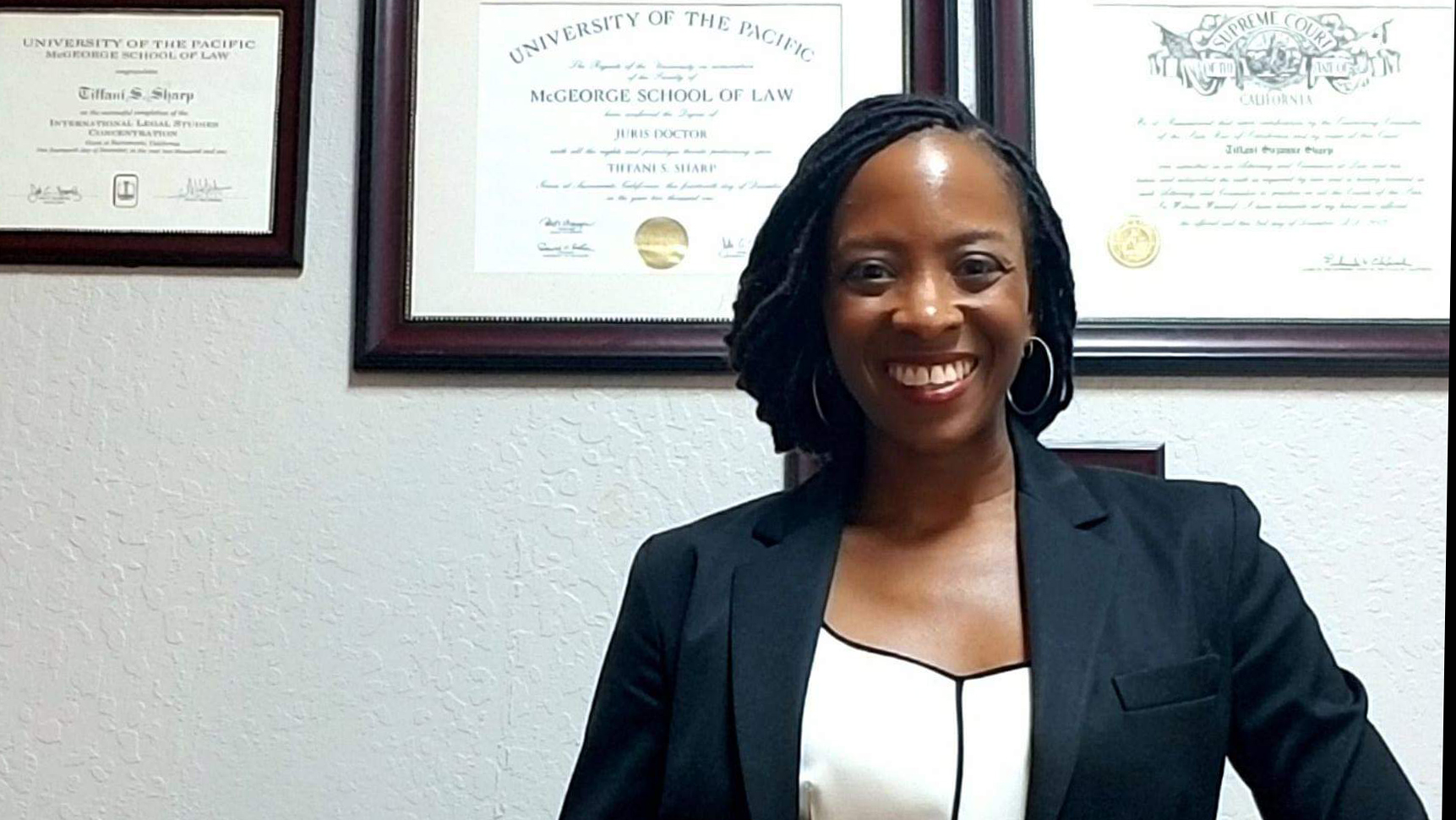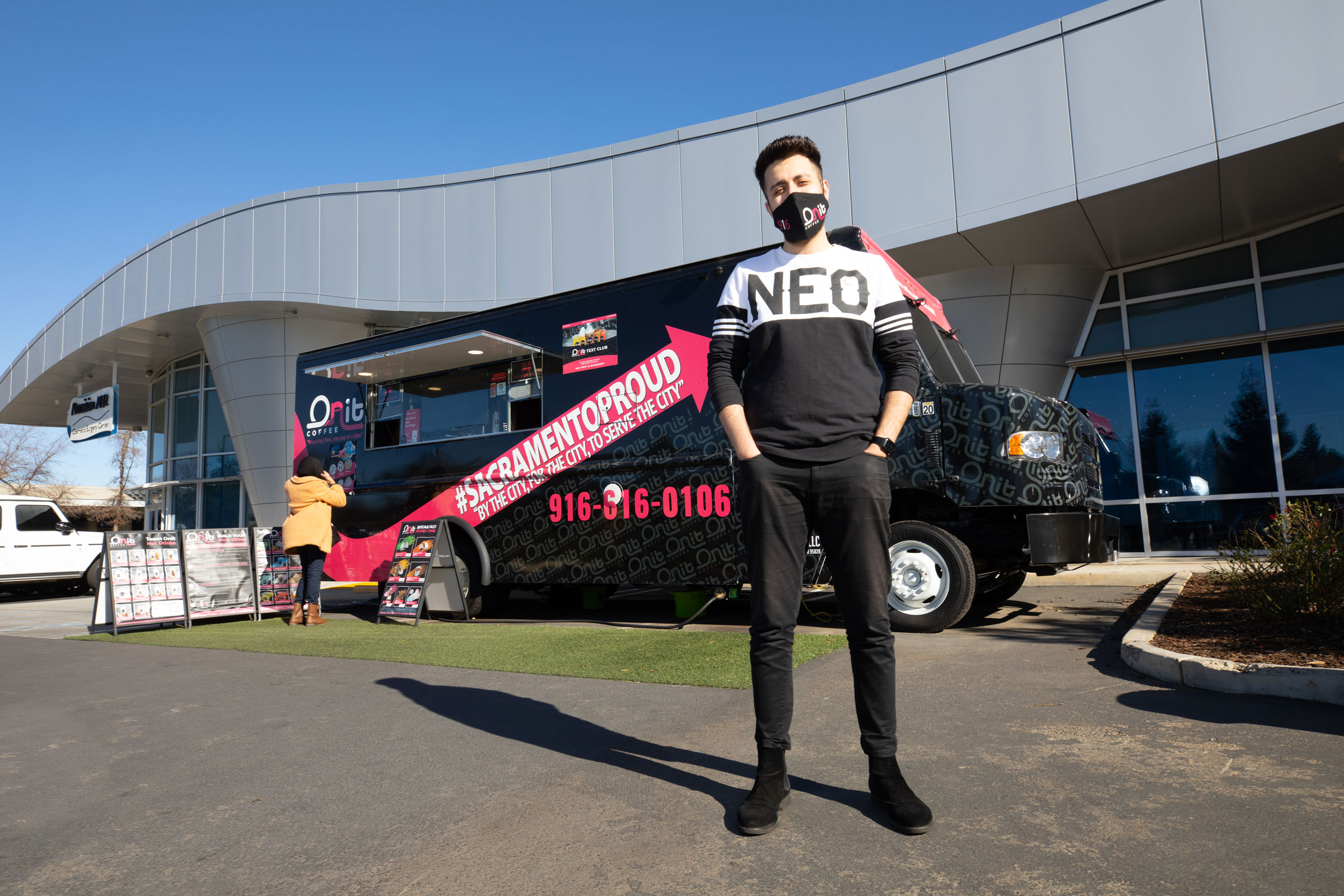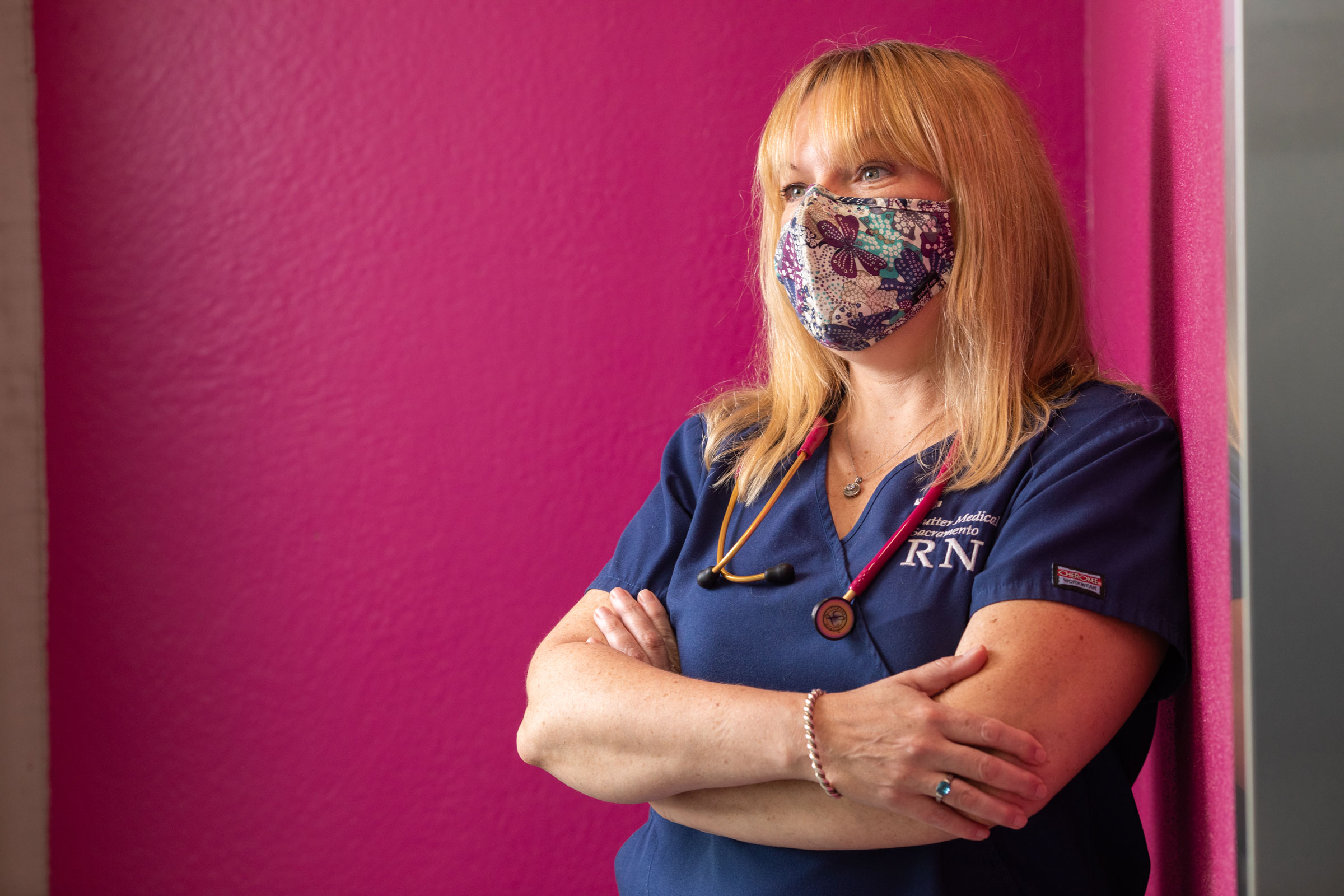Story Content
Attorney Tiffani Sharp empowers women in Sacramento and abroad
February 08, 2021
 When Tiffani Sharp’s '97 (Marketing) daughter Willow was 5, she didn’t mince words when talking to her mom.
When Tiffani Sharp’s '97 (Marketing) daughter Willow was 5, she didn’t mince words when talking to her mom.
“(Willow) told me I needed to get my own life because she was starting school and, you know, I needed to go do something,” Sharp said.
“So I went to Kenya.”
In Kenya, one of several countries where Sharp had volunteered, she and a friend helped HIV-positive teen mothers develop income-generating activities.
“I was having conversations and interacting with them, and they started asking really brilliant entrepreneurial questions about starting a business and marketing their products,” Sharp said. “It wasn’t what I had expected. I realized that if these women just had the know-how to run a business, they could be incredibly successful.”
On the 24-hour plane ride home, Sharp wrote the business plan for what become Willow Tree Roots, a nonprofit organization named after her daughter and designed to economically empower women in developing countries and, locally, in Sacramento.
Sharp’s nonprofit work is just the latest example of a somewhat benevolent rebelliousness that Sharp says her parents identified early on, and which has propelled her since her teenage years.
She enrolled at Sac State – the only one of her parents’ three children to attend college – so that, in her father’s words, she did not have to rely on someone else to take care of her. She quit a lucrative job at a technology company to attend law school, believing she had more to offer and achieve.
“I have an issue with authority and being told what to do, particularly if I think that things aren’t done ethically or correctly,” Sharp said. “(My parents) would probably say I was a rebellious child in the sense that I was not an in-the-box kind of thinker.”
With a father in the Air Force, Sharp moved frequently with her family as a young child before they settled in Fair Oaks when she was 5. Sacramento State, the only college to which she applied, was close enough to allow her to continue living at home and had a well-regarded business school.
When she arrived on campus in 1993, the diversity of its student body, its academic rigor, and its welcoming and supportive faculty struck her.
“People actually cared about what was going on with you, were invested in you being successful, and really went out of their way to make sure that you were successful.”
“I was getting a really elite education from the business school. But, by the same token, it was like I had a bunch of aunties and uncles that were taking care of me. It didn’t feel like I was lost in a swarm of an elite school,” Sharp said. “People actually cared about what was going on with you, were invested in you being successful, and really went out of their way to make sure that you were successful.”
At one point a triple major, she eventually chose Business Administration while also becoming involved with the Black Student Union and an international student organization. A faculty member recommended her for an internship with a local tech company, which became her first job after graduation in 1997.
The job paid well, and she bought a house just a few years after graduation. However, something was off.
“I was really young, and I was just bored,” Sharp said. “I was like, ‘OK now, this can’t be what people do for the rest of their lives.’ ”
Remembering that her father had once told her she would make a good attorney, she took the LSAT and applied to Sacramento’s McGeorge Law School, thinking little of it until she learned she was accepted. She graduated in 2001, was admitted to the bar the following year, and in 2004 opened her own firm, focusing on federal, constitutional, immigration, and cannabis equity law.
Having her own firm provided the flexibility to close for a few weeks at a time and volunteer internationally. First was Costa Rica, then Nepal, Morocco, Peru, and Kenya. Then came marriage and motherhood, which put volunteering on hold until that fateful conversation with Willow.
Over the past five years, Willow Tree Roots has helped hundreds of women in developing countries, including HIV-positive mothers in Kenya, domestic violence survivors in Peru, and human sex trafficking survivors in Nepal.
In every place, the goal is the same: Empower local leaders who can, in turn, empower community women, in culturally appropriate ways, to become economically independent. That means hiring project coordinators directly from the populations they serve, avoiding a mindset that assumes Western ways are best, and building sustainable programs that will live long after Willow Tree Roots’ volunteers have left.
One example of the organization’s work is community banking systems, created so the women can obtain loans, invest, and learn how to manage money. Doing so, Sharp says, benefits the entire community.
“When women make money, they get their children vaccinated. They invest in infrastructure. They make sure the environment is taken care of. They employ people within the community,” she said.
Sharp hasn’t forgotten her hometown, however. Realizing the number of women of color in Sacramento who also could use help building their businesses, in 2017 she launched The Power of SHE, a program that is part of Willow Tree Roots and brings the same support and resources to local women.
In 2019, she also founded WOC Canna, to help provide business opportunities and resources for women of color who want to get into the burgeoning cannabis industry.
Her time at Sac State helped build the foundation for everything that has followed. The campus is where, she says, she learned “to be nerdy” – that is, to appreciate the meticulous, detail-oriented and analytical side of herself that sometimes got her teased as a kid.
“I can be myself and do what I love to do and actually help people and make a living from it,” Sharp said. “That’s the kind of job that people want to do in life.”


